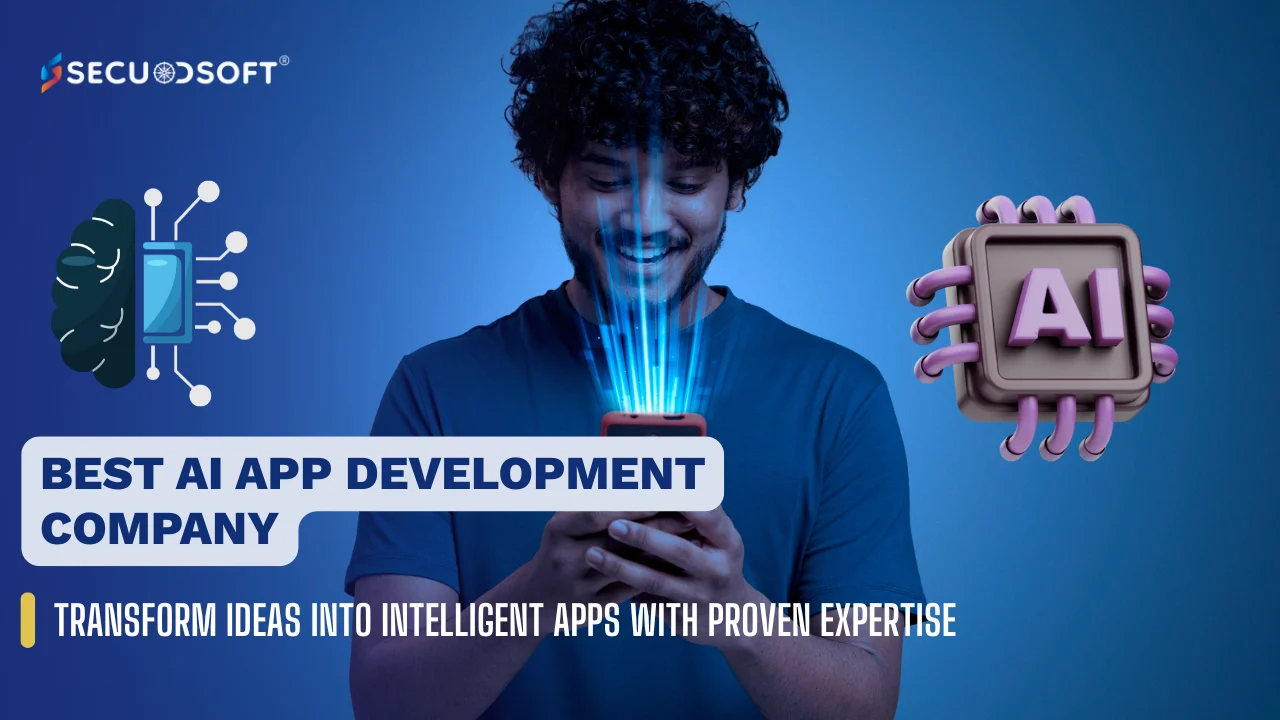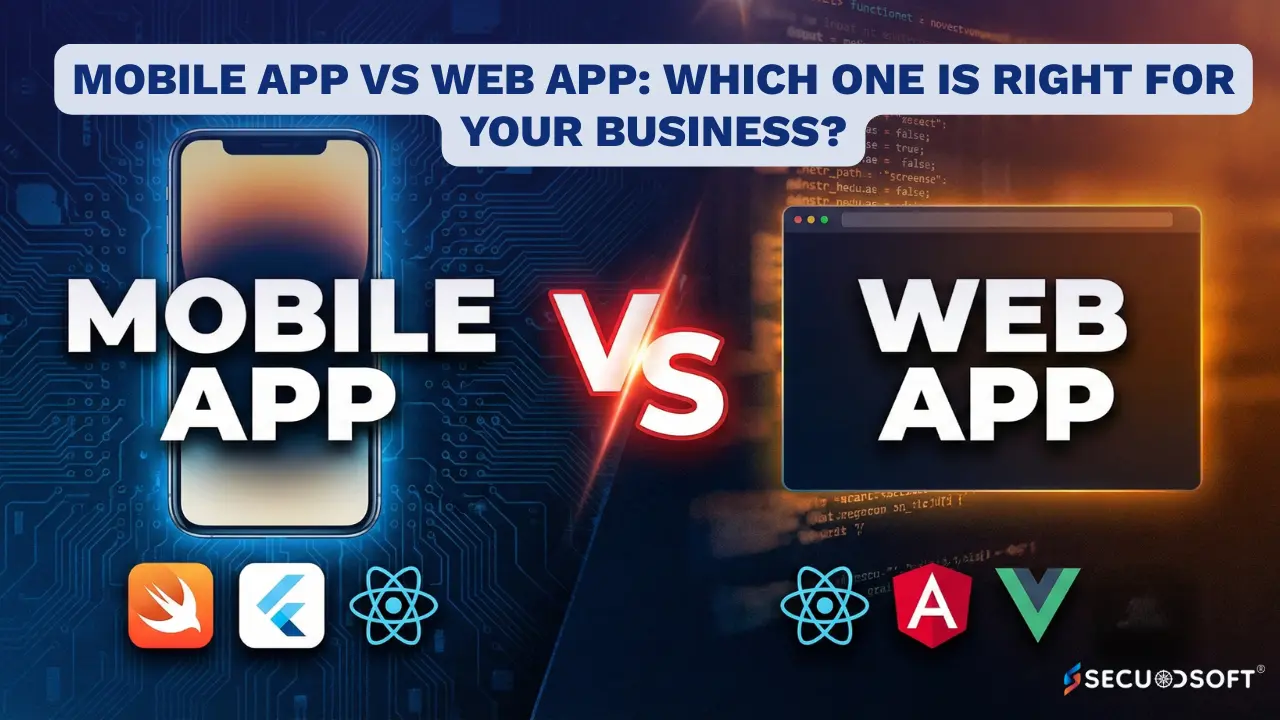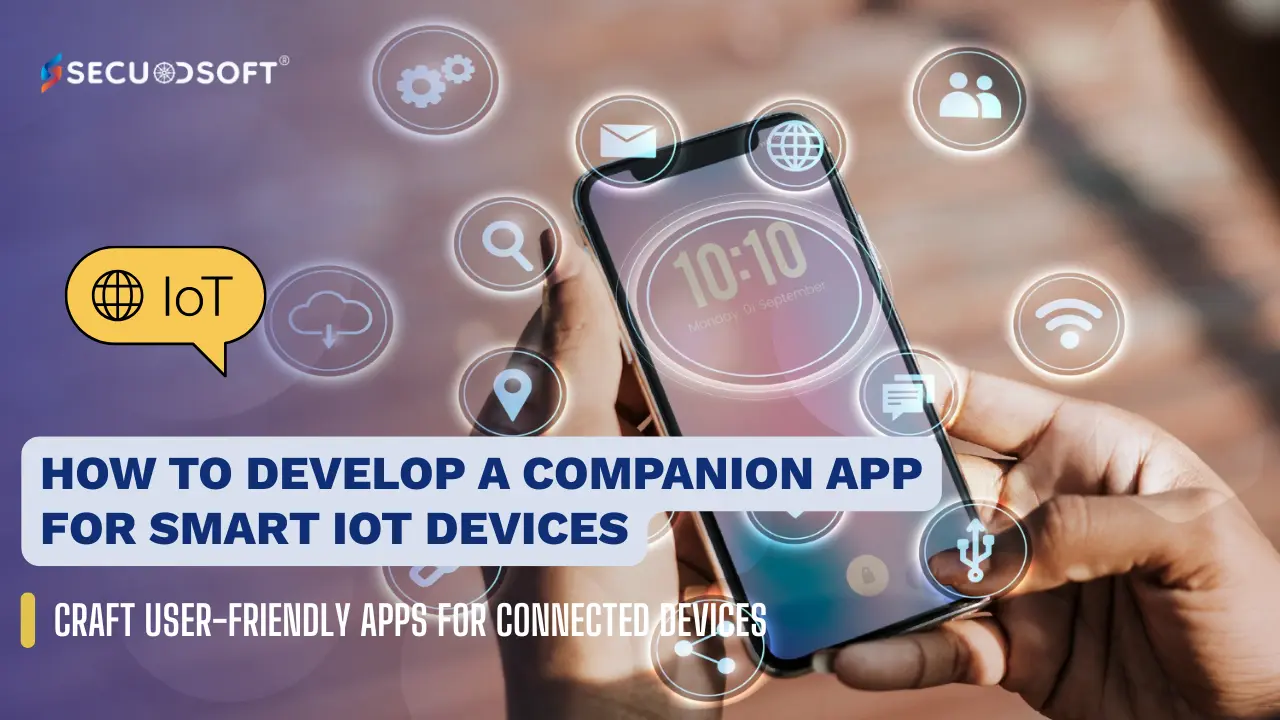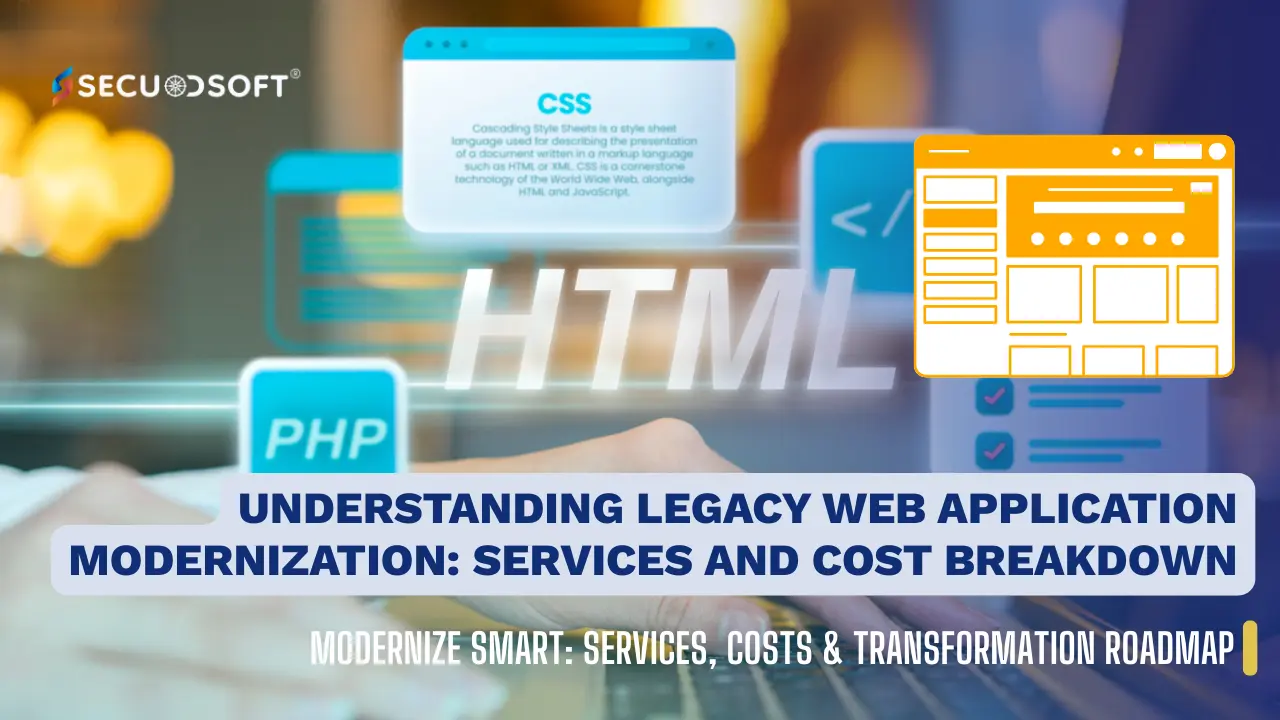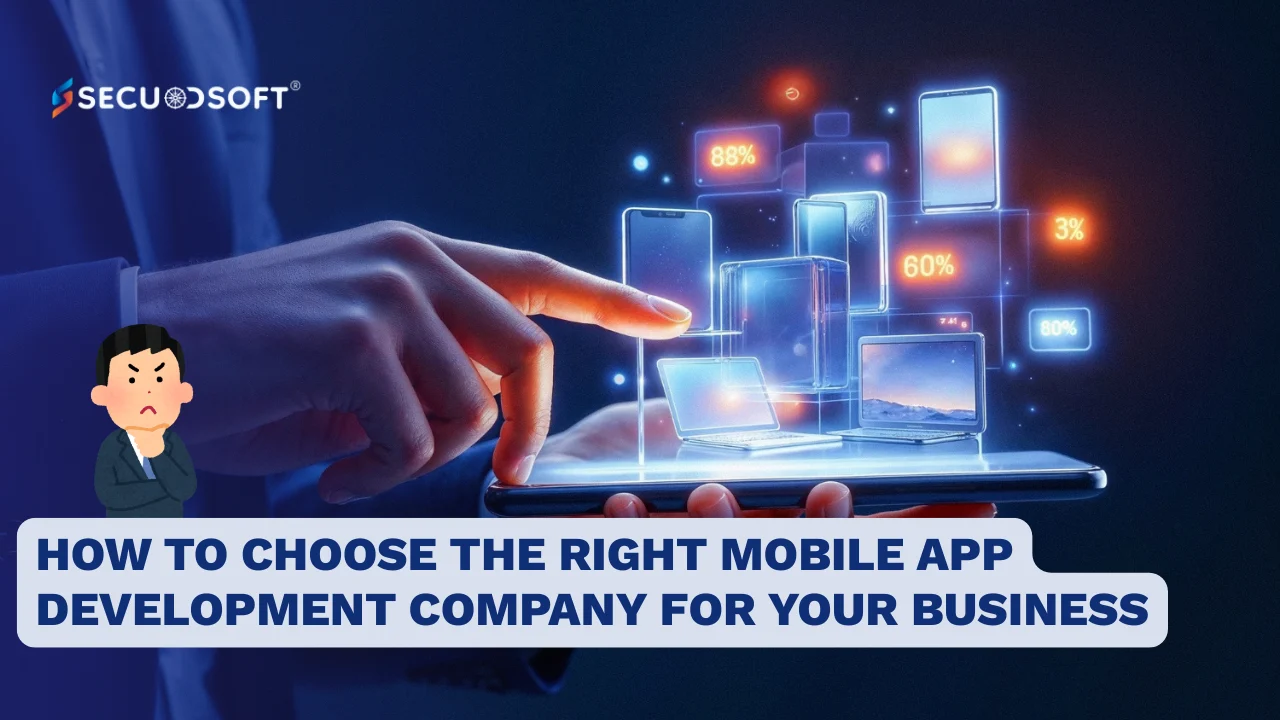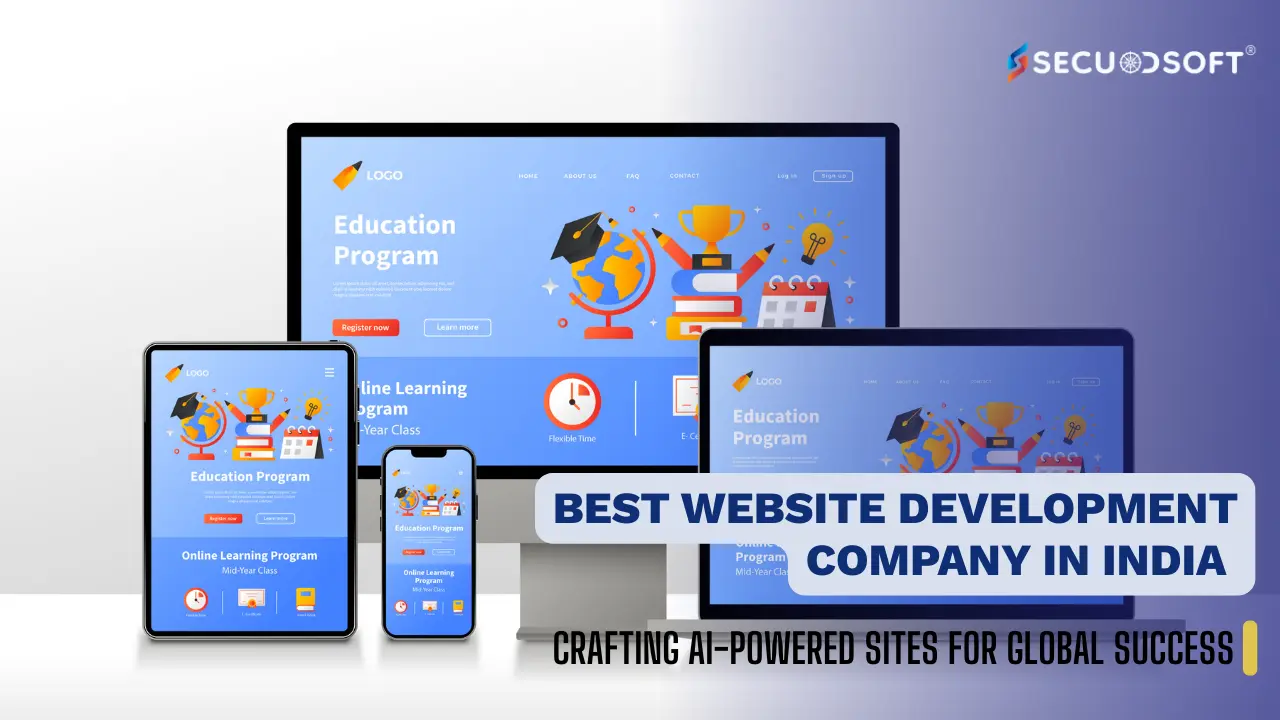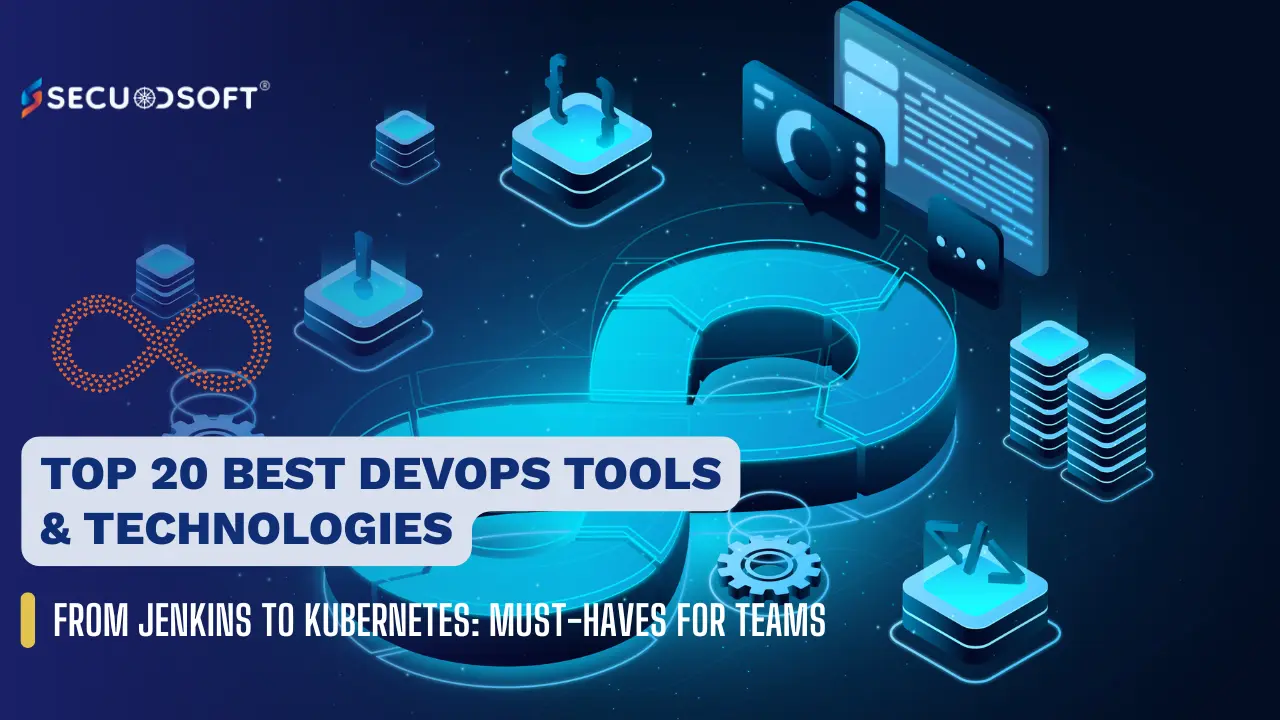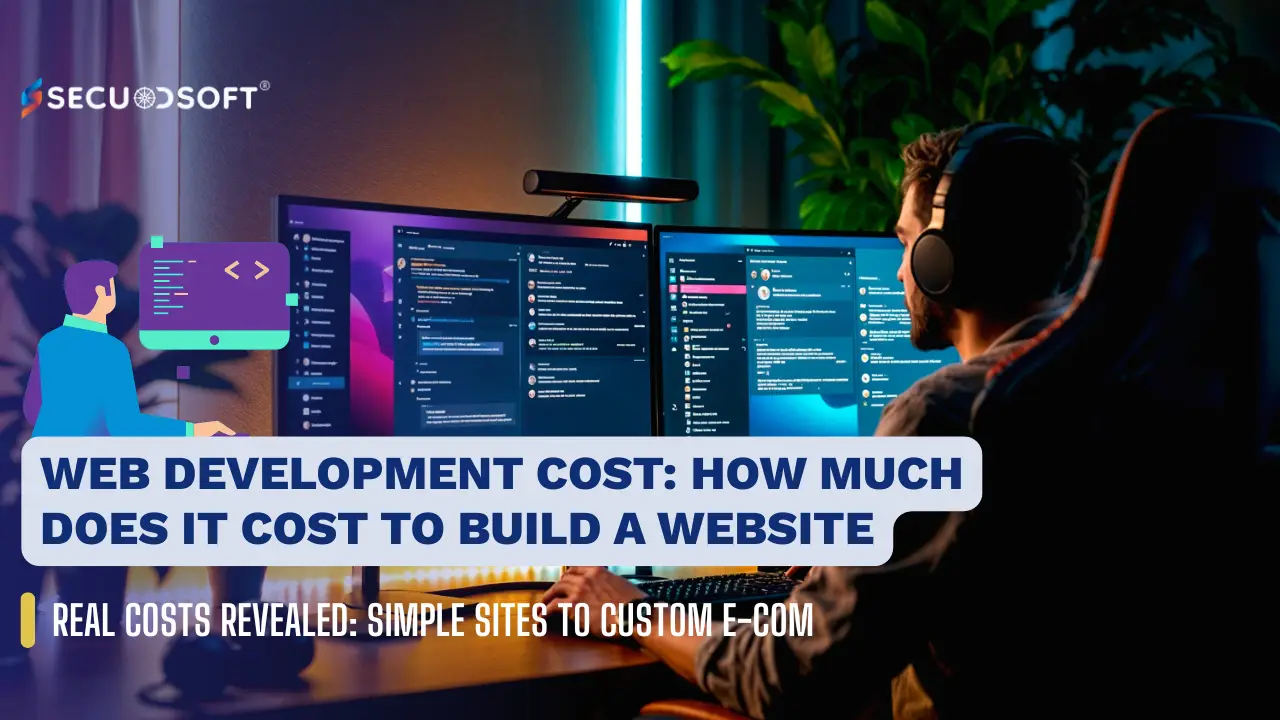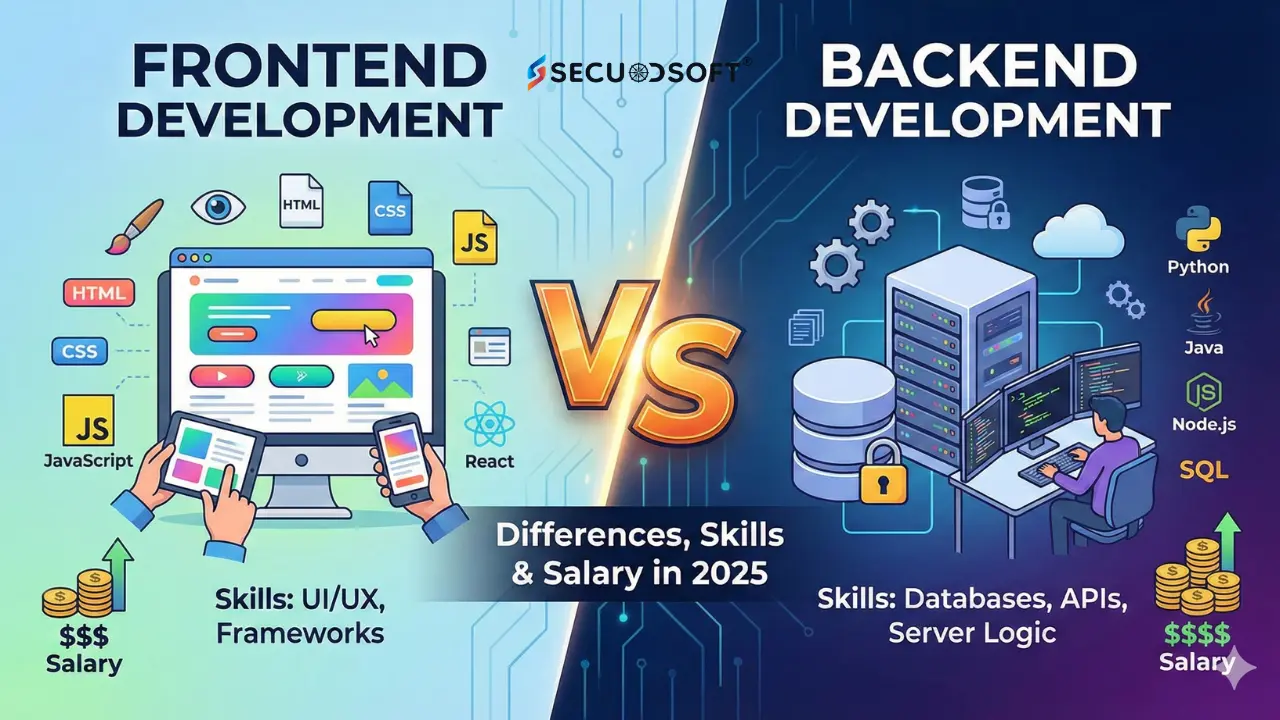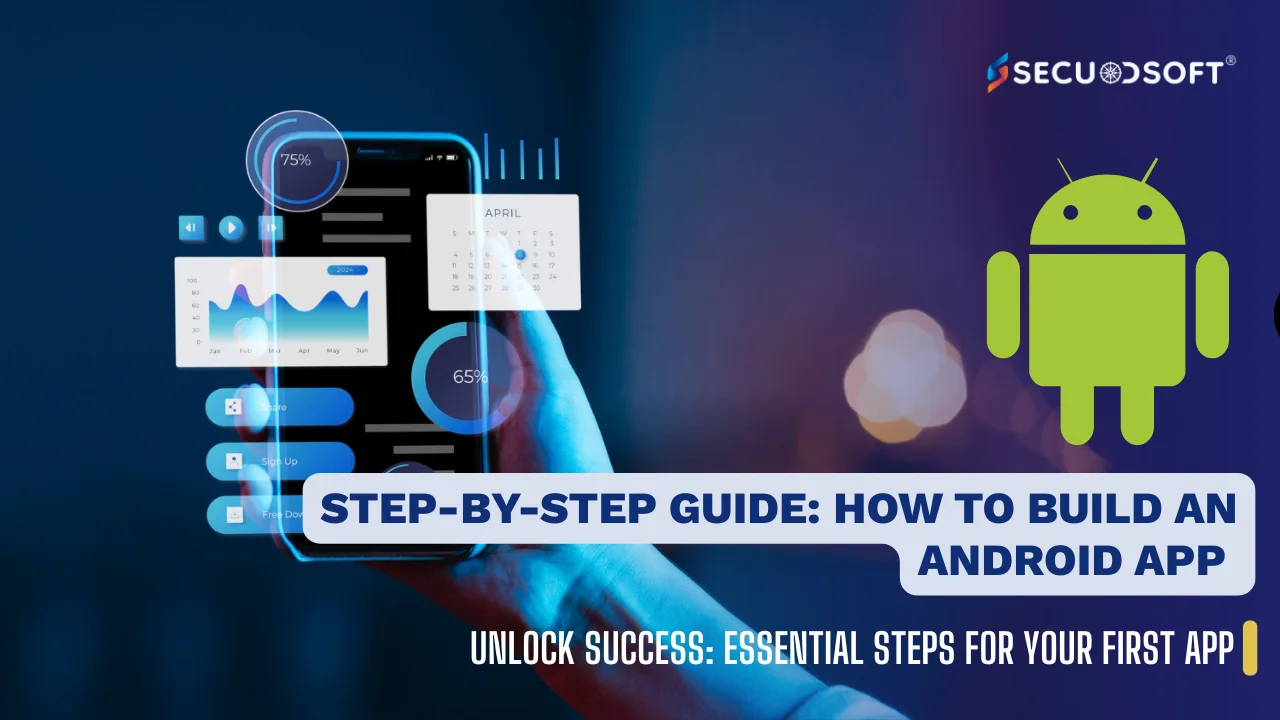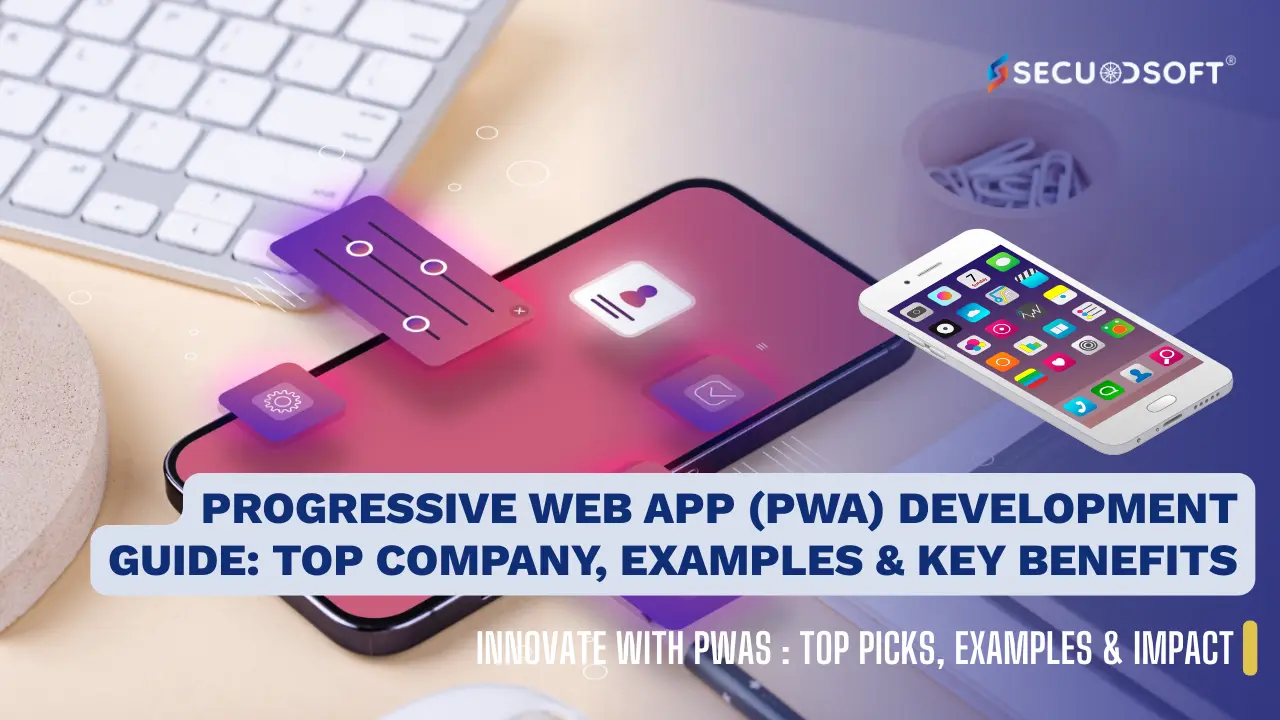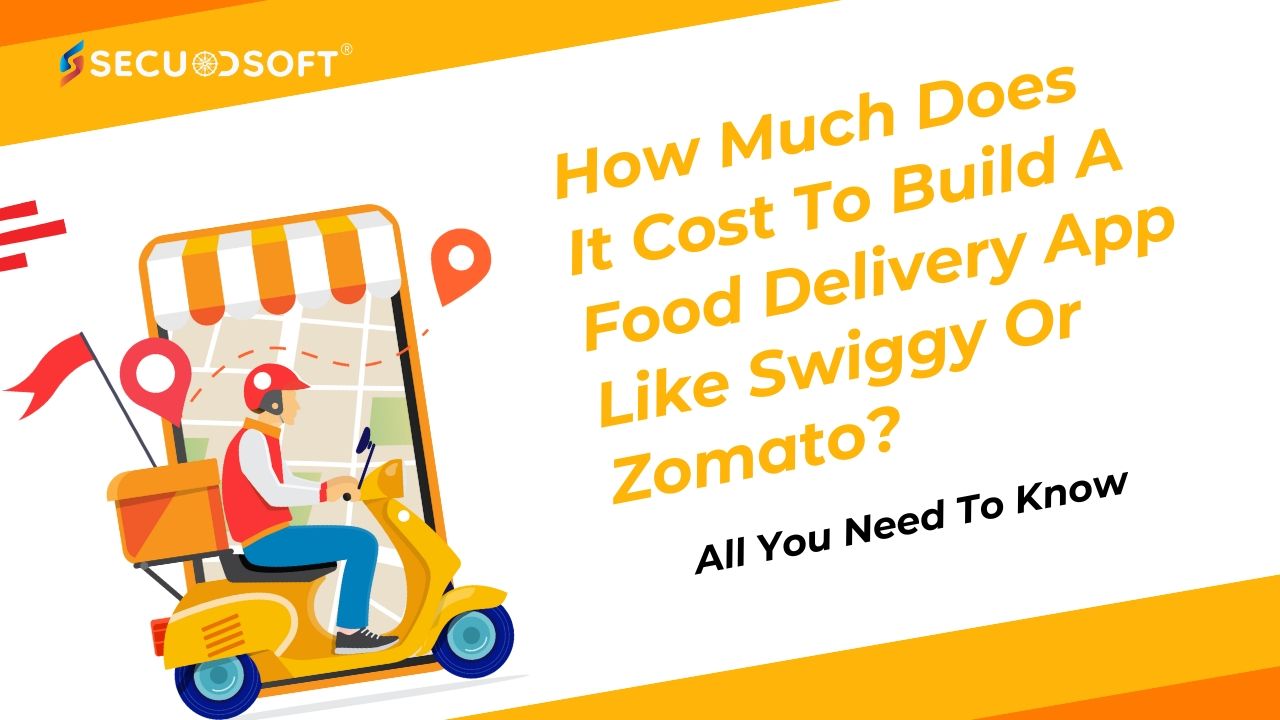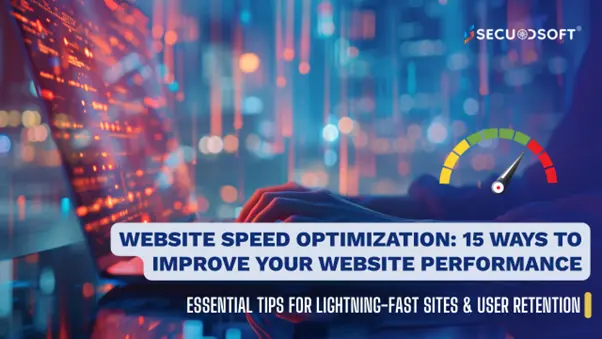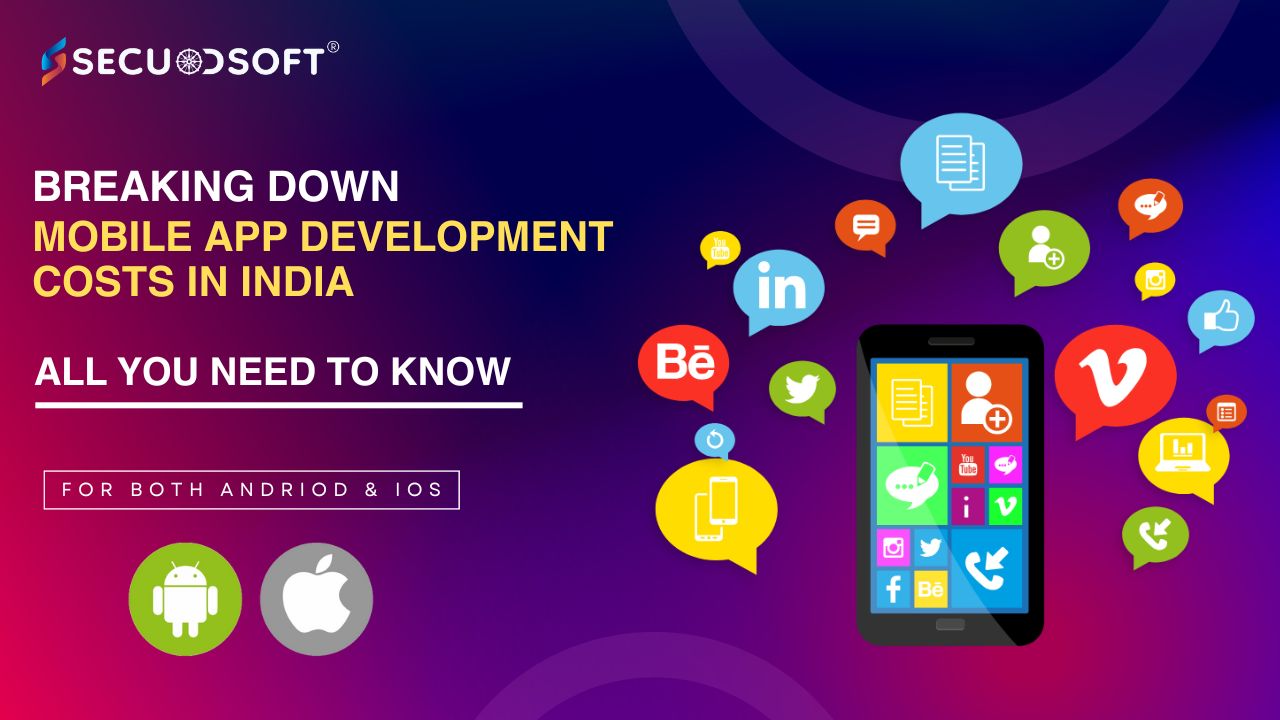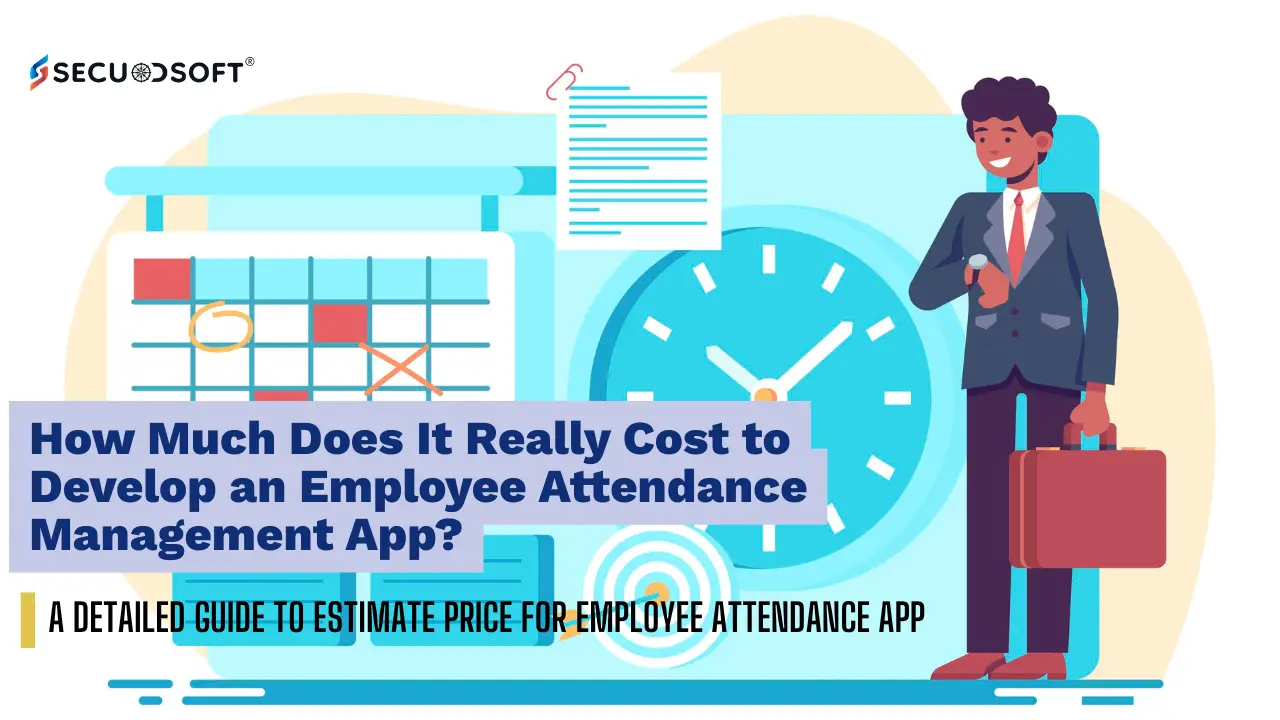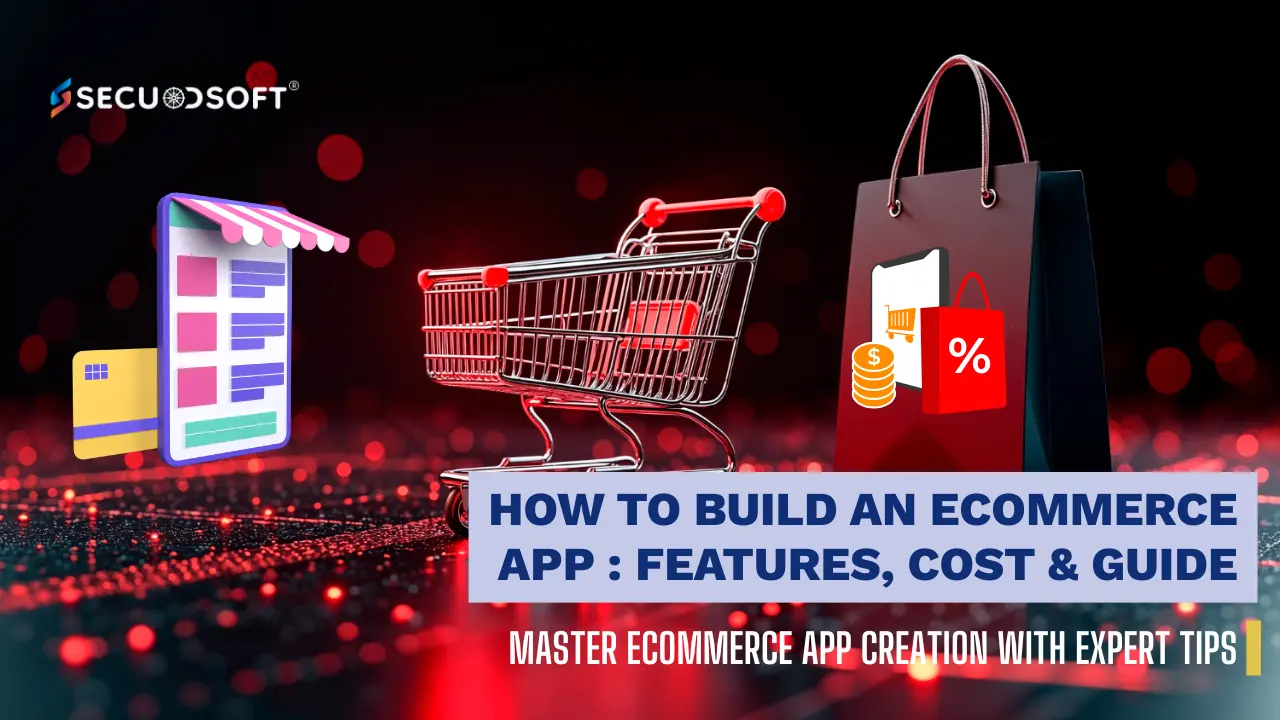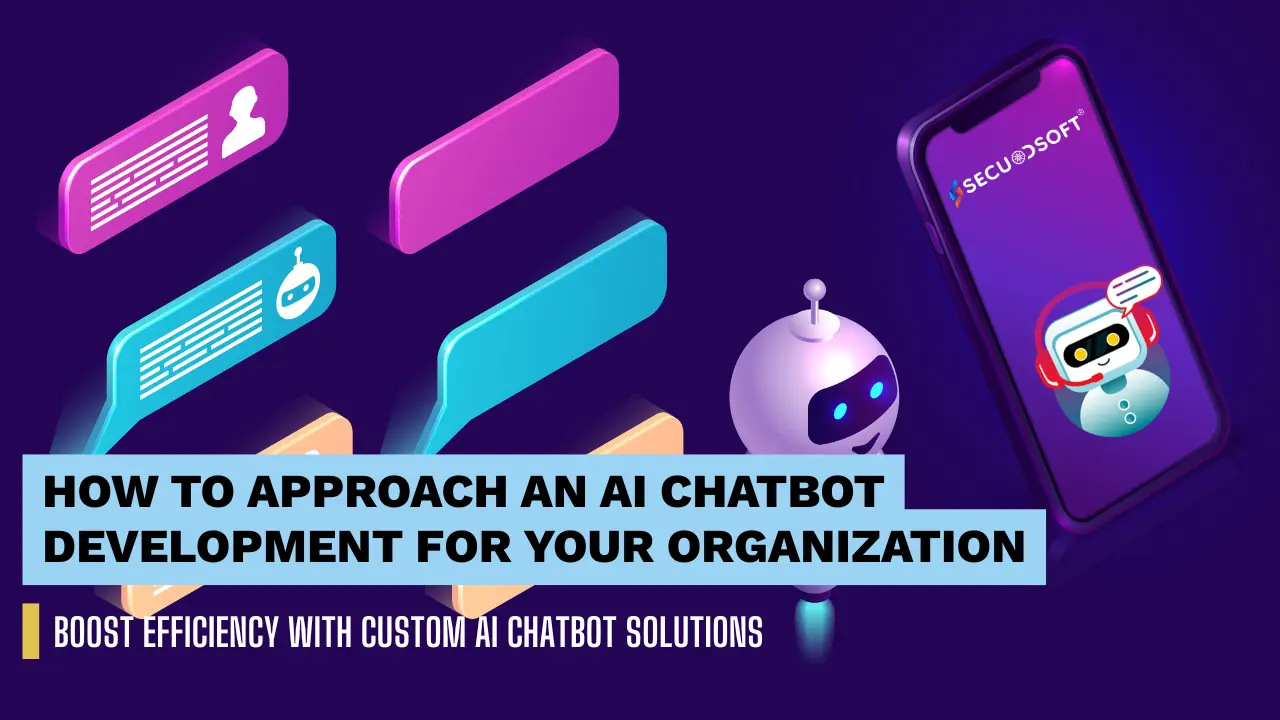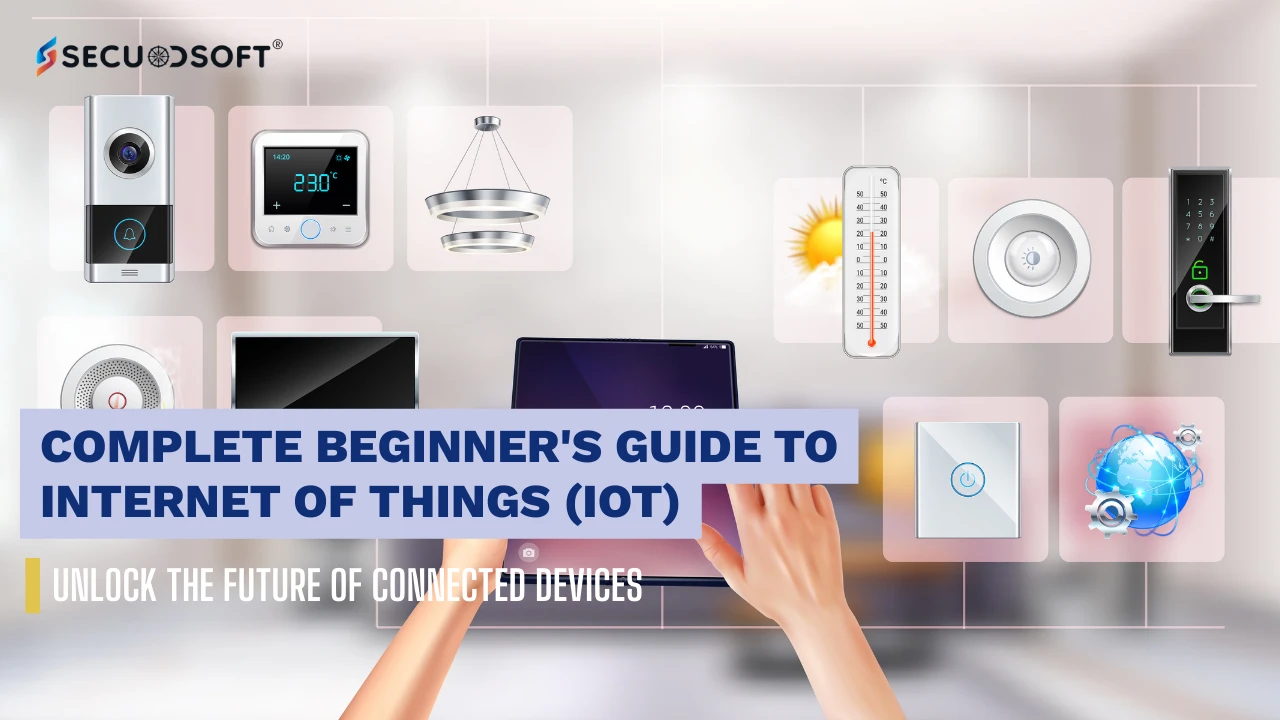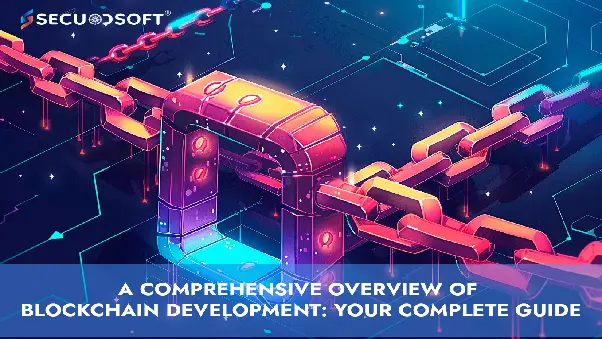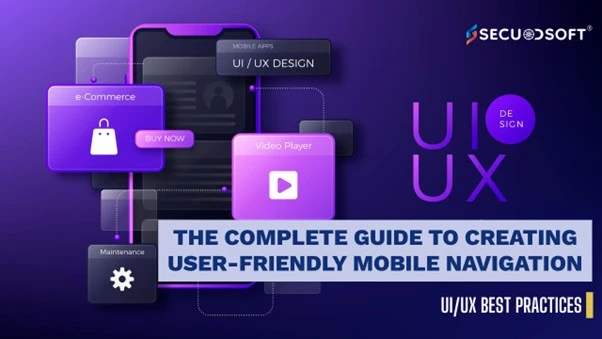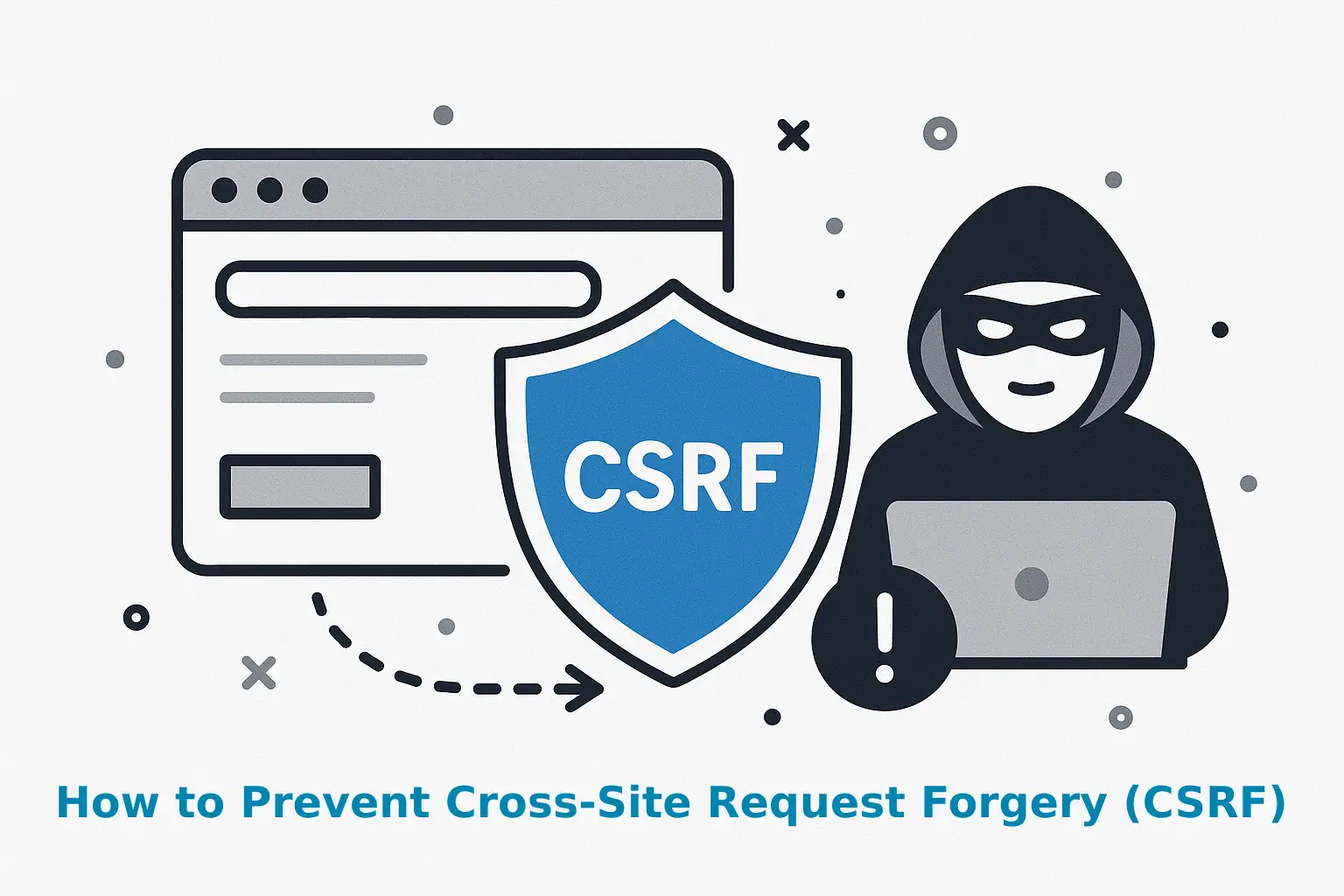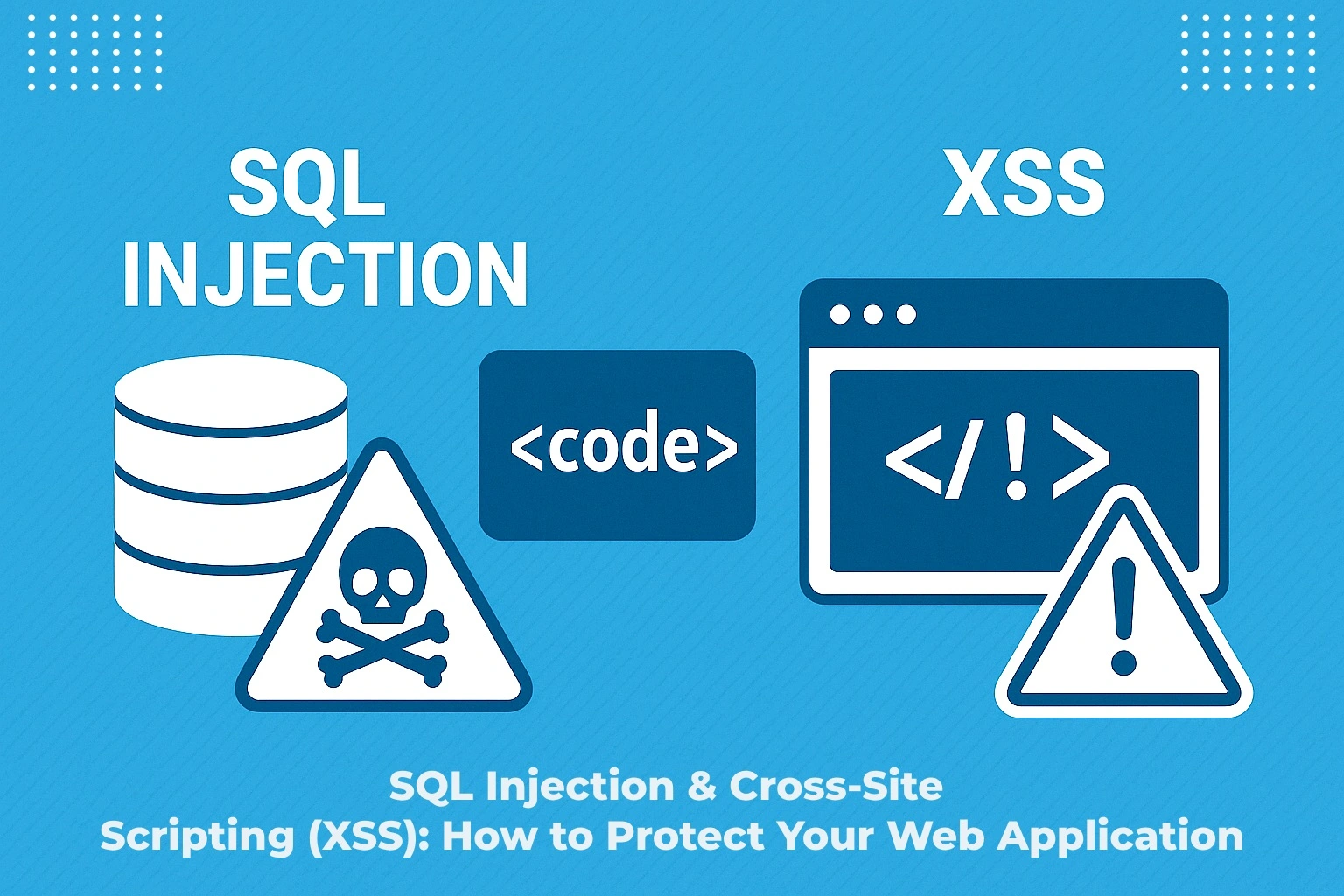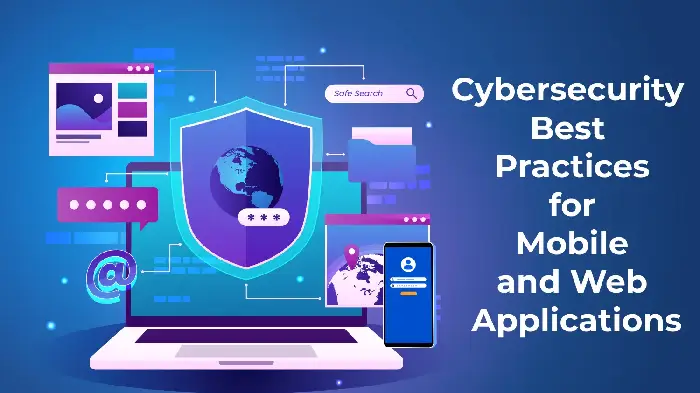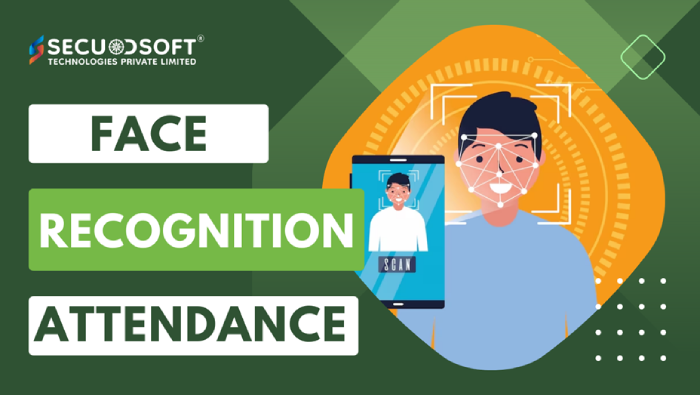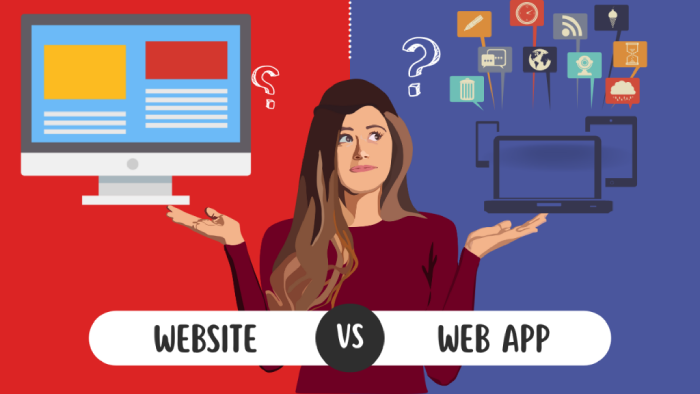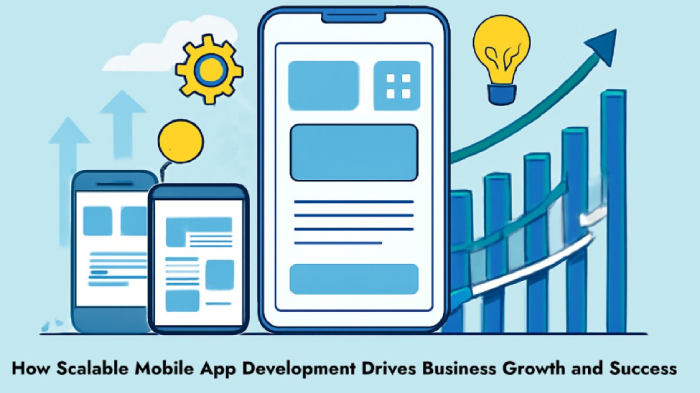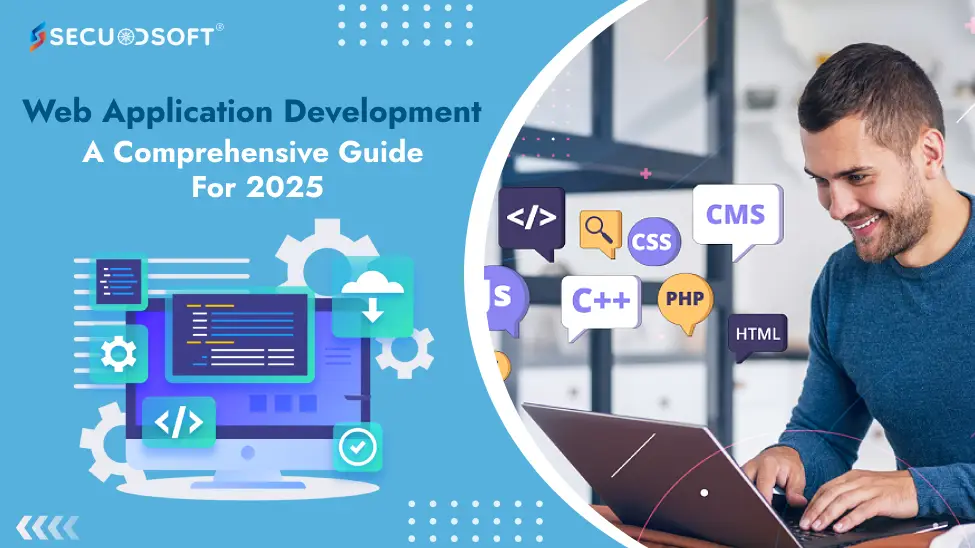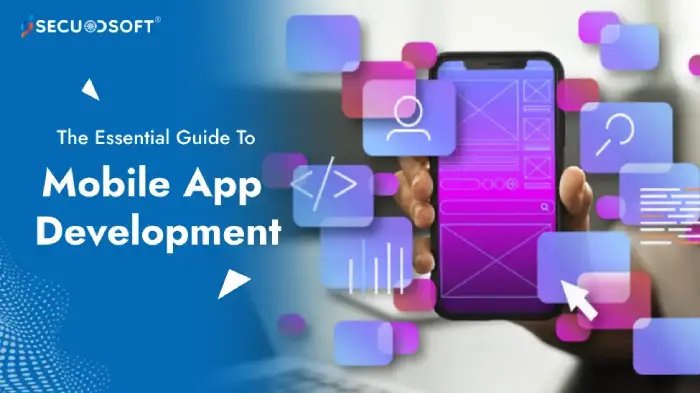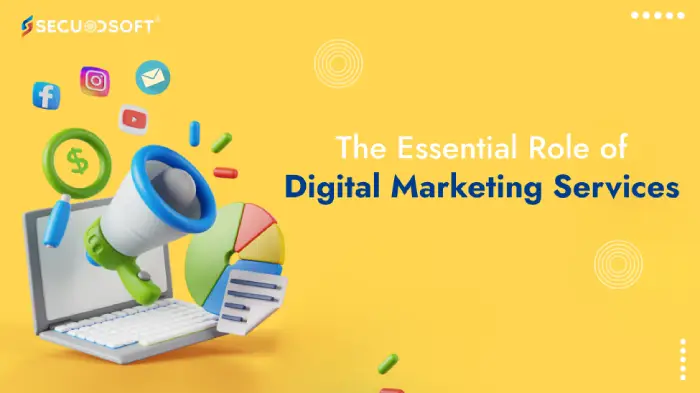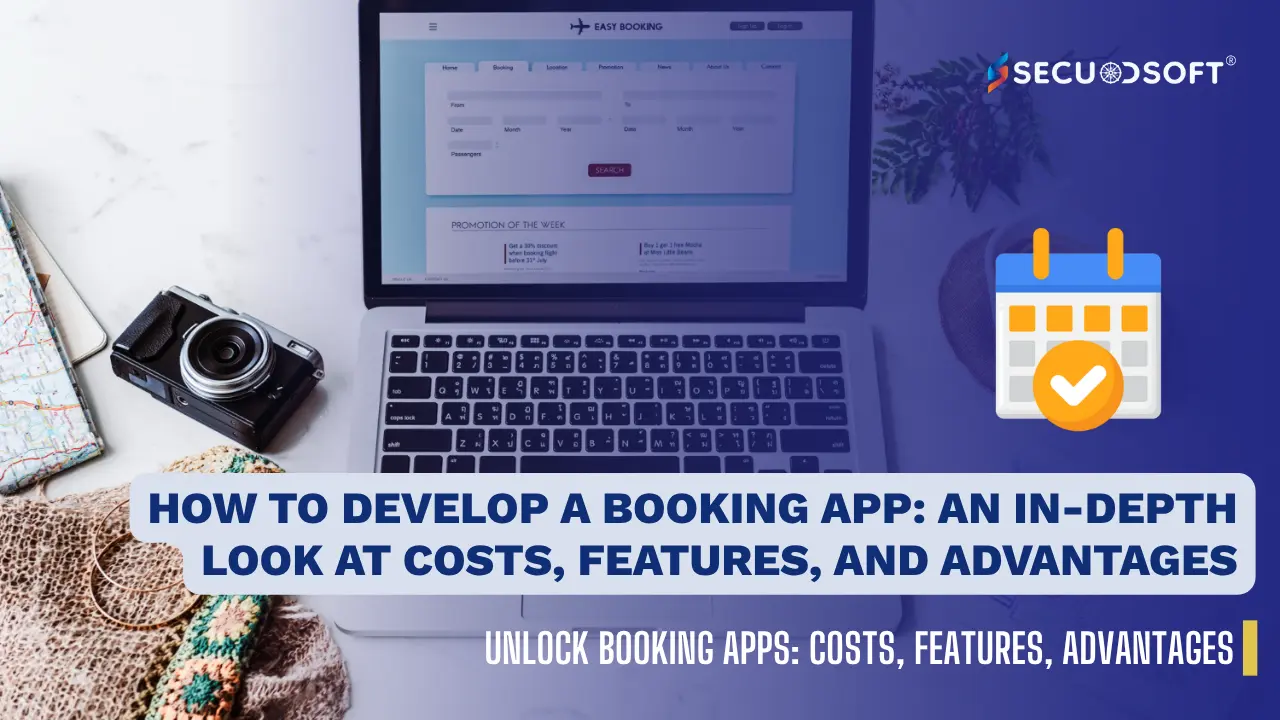
Mobile App Development
Editorial Team
24 October 2025
Introduction
In today's digital-first world, convenience and efficiency drive consumer behavior. From reserving a hotel room to booking a doctor's appointment or purchasing concert tickets, the demand for seamless, on-the-go booking experiences is stronger than ever. Businesses leveraging technology to provide such services not only satisfy customer expectations but also unlock new channels for growth, operational efficiency, and brand differentiation.
A well-crafted booking app is at the heart of this transformation. Booking applications streamline the reservation process, reduce manual intervention, and enable businesses to serve their customers round-the-clock. Whether you’re in hospitality, health & wellness, entertainment, or services, investing in a smart booking solution is now imperative.
This comprehensive guide explores the different types of booking apps, factors to consider before development, a detailed cost breakdown, essential features, and the compelling advantages of launching your own reservation platform.
Types of Booking Apps
Modern booking apps are highly versatile, with solutions catering to unique industry needs. Here are three popular types:
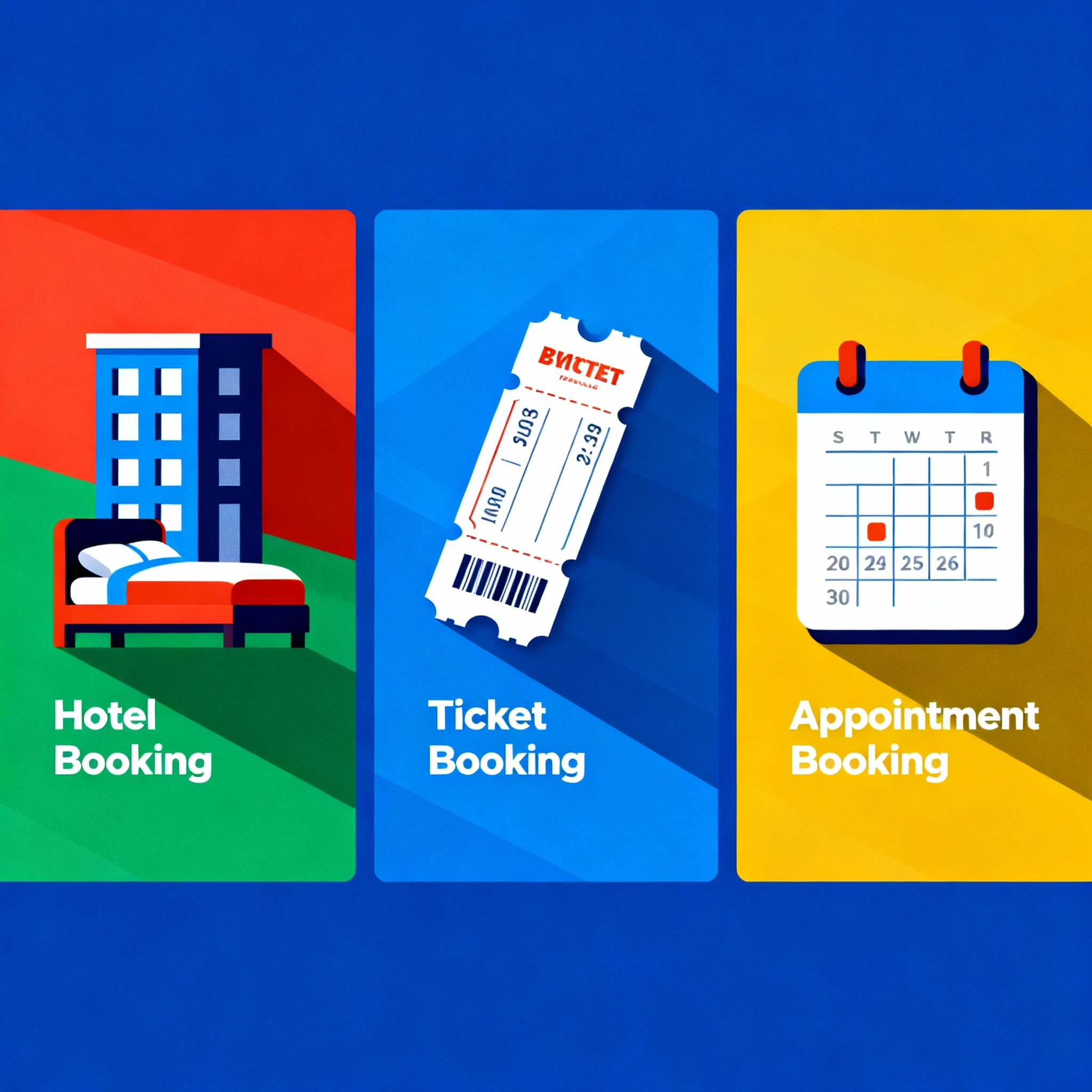
1. Hotel Booking Apps
Hotel booking apps - like Airbnb or Booking.com - enable users to search for accommodation, compare rates and amenities, check availability in real-time, and complete their reservations with secure payments. These apps empower both chain hotels and independent properties to reduce their dependence on commission-driven Online Travel Agencies (OTAs) by capturing direct bookings and building ongoing customer relationships.
2. Ticket Booking Apps
Ticket booking apps are widely used for events, movie theaters, transportation (flights, trains, buses), and attractions. With real-time seat selection, instant e-ticket generation, notifications, and payment integrations, these platforms reduce queues, minimize manual errors, and offer flexibility to both organizers and attendees.
3. Appointment Booking Apps
Appointment apps dominate sectors like healthcare, beauty & wellness, consulting, and clinics. These applications let users schedule, reschedule, or cancel bookings, receive reminders, and make online payments. They are essential for service-based businesses that rely on streamlined scheduling and capacity management.
Some booking apps even blend these categories, offering hotel, event, and appointment functionalities to cater to broad business needs.
Things to Consider When Developing an App
Developing a booking app is a strategic investment that requires thoughtful planning, clear objectives, and a user-centric approach. Here are some of the most important factors to consider:
1. Defining the App’s Purpose and Audience
Decide on the core vision—will the app serve hotels, appointments, events, or all? Understand your target audience’s device preferences (Android/iOS), tech-savviness, and pain points.
2. Competition and Market Research
Analyze similar apps in your industry, noting their strengths, weaknesses, and user experience. Detailed benchmarking aids in identifying unique selling propositions (USP) and recognizing industry best practices.
3. App Complexity and Feature Set
List essential and value-added features. Will you build a minimum viable product (MVP) with core functionality, or a feature-rich platform from day one?
4. Platform Choice
Choose between native (iOS, Android), cross-platform (React Native, Flutter), or web-based solutions. Cross-platform development saves cost and time, gaining increased popularity among startups and SMEs.
5. Design and User Experience
Modern users expect intuitive, frictionless interfaces. Minimalistic design, clear navigation, and fast load times should be prioritized throughout the development process.
6. Scalability and Integration
Select a tech stack and system architecture that supports growth. Check for seamless integration with existing systems, CRMs, calendars, payment gateways, and third-party APIs as appropriate.
7. Security and Compliance
With personal and financial data at stake, implement end-to-end encryption, secure payment gateways, GDPR (or local law) compliance, and robust authentication.
8. Maintenance and Support
Plan for post-launch updates, user feedback, security patches, server maintenance, and long-term technical support to keep your app competitive and secure.
How Much Does It Cost to Develop a Booking App?
Booking app costs vary greatly depending on complexity, features, platforms, and development agencies’ rates. Below are industry-average estimates for 2025, and main factors influencing the final budget:
Key Cost Factors
- App Features: Basic search and booking, notifications, and payment gateways are less expensive than advanced analytics, real-time tracking, or AI-based recommendations.
- Platform: iOS- or Android-only apps cost less than cross-platform or web-based apps.
- Design: Custom graphics, animations, and user flows raise development costs.
- Third-party Integrations: Maps, payment processors, SMS gateways, and calendar APIs add licensing or dev time costs.
- Backend Infrastructure: Cloud hosting, scalability, and robust database architecture influence budget.
- Testing & QA: Quality assurance, load and security testing are critical for reliability.
- Maintenance: Ongoing updates, troubleshooting, and user support is typically estimated as 20% of the initial cost per year.
Estimated Development Costs (2025)
| App Complexity |
Cost Range (USD) |
Development Time |
| Basic App |
$15,000 – $40,000 |
3 – 6 months |
| Moderate App |
$40,000 – $100,000 |
6 – 9 months |
| Advanced App |
$100,000 – $250,000 |
9 – 12 months |
| Enterprise-grade App |
$250,000+ |
12 – 18+ months |
India Market (INR):
- Basic: ₹1.5 lakh – ₹3 lakh
- Mid-level: ₹3 lakh – ₹6 lakh
- Advanced: ₹6 lakh – ₹10+ lakh
These costs include planning, design, development, backend, integration, testing, and initial deployment. Ongoing costs for hosting, updates, bug fixing, and support must also be budgeted.
Key Features to Develop a Booking App
While each niche may need custom features, successful booking apps typically include the following:
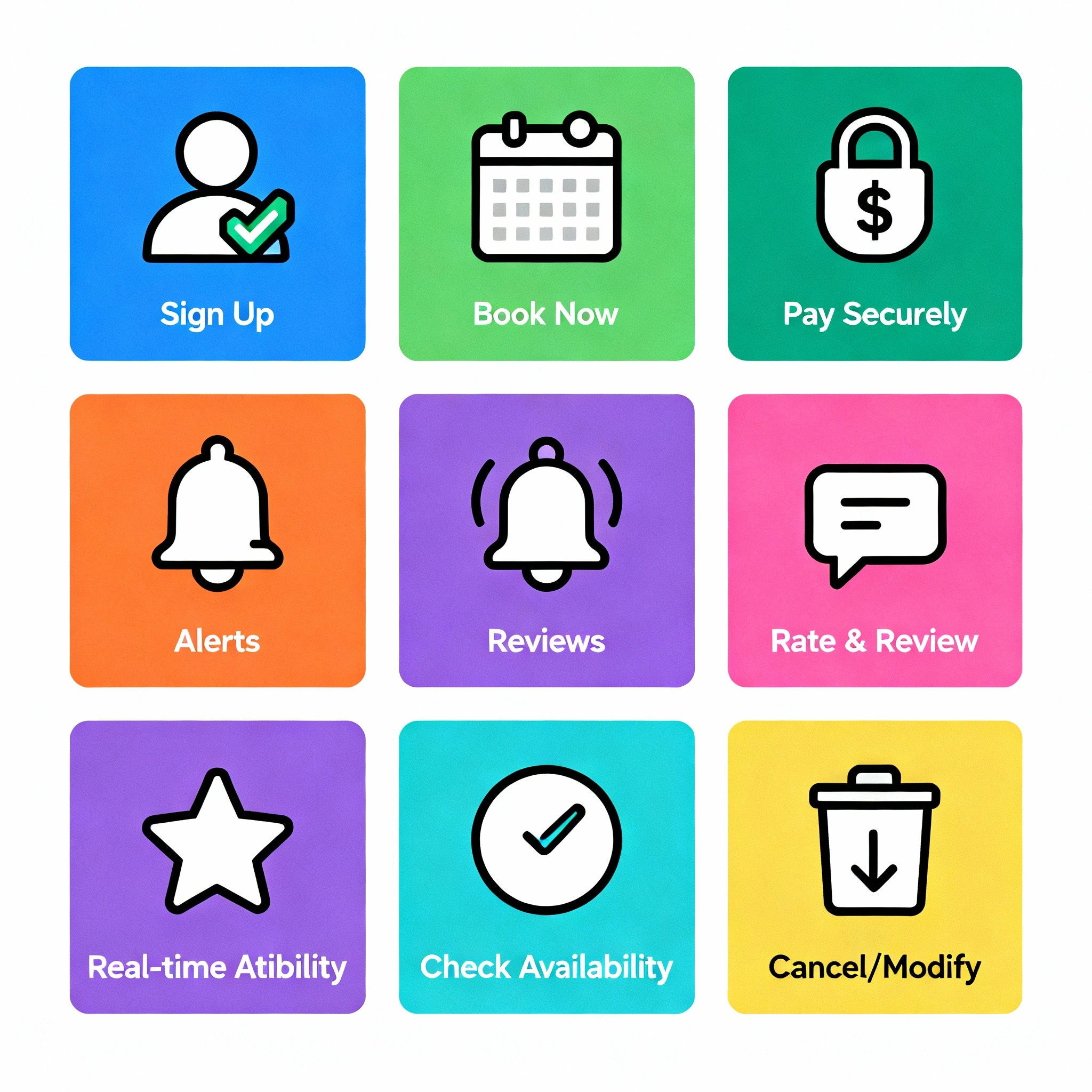
Essential Features
- User Registration/Login: Email, mobile, or social sign-in for security and convenience.
- Search and Filtering: Real-time listings for hotels/appointments, with filters (location, price, ratings, availability).
- Booking Calendar: Integrated calendar showing available slots or inventory.
- Secure Payments: Credit/debit cards, wallet, UPI, PayPal, Apple Pay, Google Pay.
- Booking Confirmation: Instant notification and digital receipt via email/SMS.
- Push Notifications: Reminders, confirmations, promotions, and status updates.
- User Dashboard: Manage bookings, profiles, history, and preferences.
- Multilingual and Multi-currency Support: Essential for global reach.
- Reviews and Ratings: Authentic feedback for quality assurance and improved credibility.
- Cancellation and Refund Management: Flexibility to reschedule or cancel.
Value-Added Features
- AI Recommendations: Personalized suggestions based on user behavior.
- Loyalty Programs and Coupons: Boost repeat business and engagement.
- Real-Time Chat/Support: In-app chatbots or human support representatives.
- Analytics Dashboard (for Businesses): Insights for inventory, demand, and user trends.
- Social Sharing: Allow users to share bookings or events directly.
Admin and Vendor Features
- Vendor/Partner Portal: For property owners, service providers, or event organizers to manage listings, schedules, and reservations.
- Automated Inventory Management: Real-time updates to prevent overbookings.
- Dynamic Pricing: Algorithms to adjust prices based on demand and availability.
Top hotel, ticket, and appointment apps often distinguish themselves by deep integration, real-time analytics, and elegant, simple design.
Advantages of Developing a Booking App
A robust booking app offers substantial benefits for both businesses and their end users:
1. 24/7 Accessibility
Clients can make reservations anytime, removing constraints of business hours and maximizing potential bookings, even while you sleep.
2. Reduced Manual Work
Automated bookings, confirmations, and rescheduling reduce frontline workloads and the risk of human error. Staff can focus on value-added activities.
3. Fewer Lost or Mixed-Up Reservations
An automated system minimizes manual handling and errors, improving the consistency and reliability of bookings.
4. Improved Customer Experience
Instant confirmations, notifications, and frictionless payments boost satisfaction and repeat business.
5. Greater Revenue & Profitability
Through dynamic pricing, direct promotions, upselling, and loyalty programs, apps help businesses maximize bookings and reduce commission dependence.
6. Data & Analytics
Real-time data on bookings, trends, and customer preferences empowers smarter business decisions, inventory forecasts, and marketing strategies.
7. Enhanced Brand Perception
A sleek, user-friendly app portrays professionalism, builds trust, and differentiates your brand in a competitive market.
8. Easy Scalability
Apps accommodate more users and services as your company grows, supporting expansion into new locations or verticals.
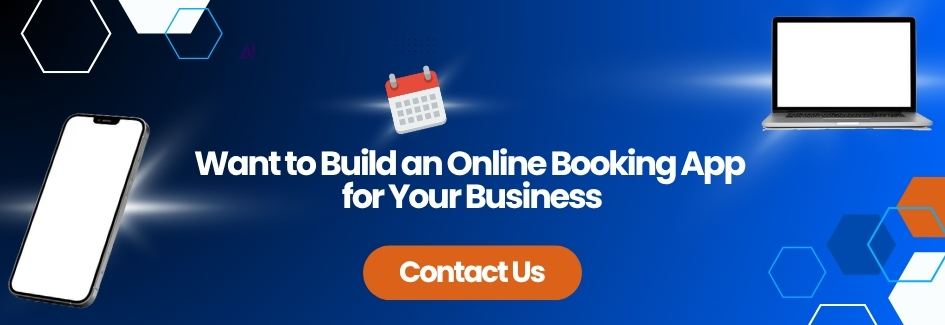
Conclusion
Developing a booking app is more than just building software - it’s about crafting a seamless, efficient, and valuable experience that transforms how businesses and customers interact. Whether you're targeting hotel reservations, ticketing, or appointment scheduling, a thoughtfully designed booking app can drive customer satisfaction, operational efficiency, and revenue growth.
With clear planning, the right feature set, and a scalable platform, your booking app can become a key differentiator in today’s competitive marketplace. The investments in technology and user experience rapidly pay off by enabling 24/7 accessibility, reducing errors, and opening new revenue streams.
Ready to revolutionize your business with a custom booking app? Connect with expert developers today to discuss your vision and get started on building a solution that meets your unique needs and delights your customers.
Frequently Asked Questions (FAQ)
The typical development timeline ranges from 3 to 12 months depending on feature complexity, platform choice (iOS/Android/web), and integration requirements.
Key factors include required features, platforms, custom design, integrations (payments, notifications, maps), backend infrastructure, and ongoing support.
Hospitality (hotels, rentals), events and ticketing, healthcare, salons, fitness, and professional services use booking apps to streamline reservations and enhance customer convenience.
Must-have features include: user registration, booking calendar, real-time availability, secure payments, notifications, booking management, and reviews. Advanced features can include AI-based personalized recommendations and loyalty programs.
Cross-platform apps are cost-effective for covering both iOS and Android users with a single codebase, while native apps offer enhanced performance and user experience.
Yes. Regular maintenance ensures bug fixing, feature updates, compliance, and user support - helping your app stay competitive over time.
Users typically create an account, browse or search availability, select services or slots, pay in-app, and get instant confirmations - enabling them to manage bookings conveniently.
Agencies offer comprehensive expertise, project management, and quality assurance, while freelancers may be suitable for small budgets but can lack team support and scalability.






